Did you know that in a survey of over 500,000 Harry Potter fans, Ron Weasley was only voted the favorite character by 5% of respondents? It’s a surprising statistic considering Ron is one of the three main characters of the series.
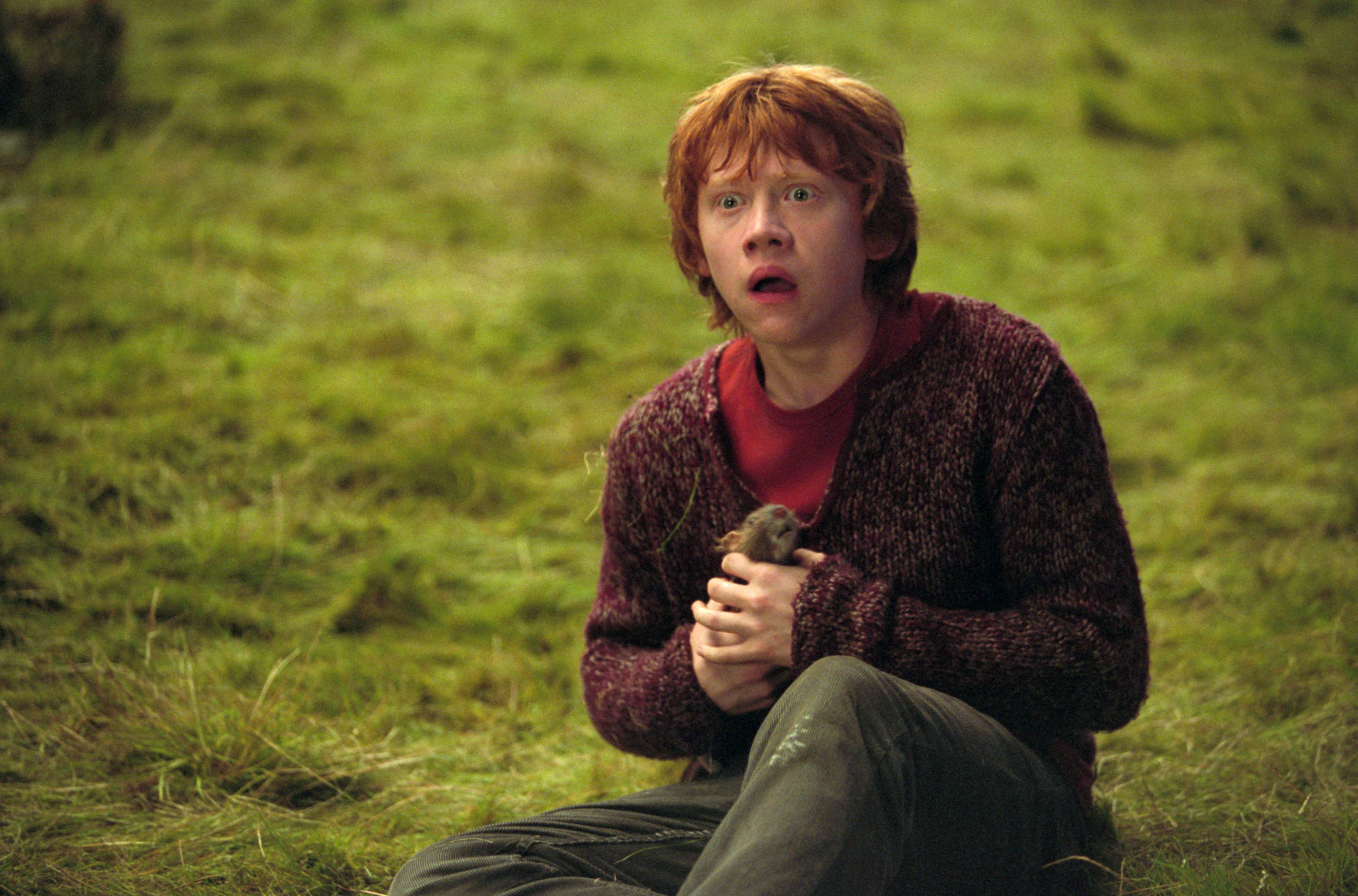
In this discussion, you’ll get to dissect the complexities of Ron’s character, explore the controversial disparities between his book and film portrayals, and understand why fan opinions about him are so polarized.
This journey might just leave you questioning everything you thought you knew about the affable, redheaded Weasley. Ready to jump down this rabbit hole?
Key Takeaways
- Ron Weasley’s character traits, such as loyalty and humor, are often overshadowed by his insecurities.
- Audience reception of Ron varies, with some admiring his growth while others find his lack of confidence frustrating.
- Debates surround Ron’s role in the series, with some arguing his importance is downplayed, particularly in the films.
- The symbolic interpretation of Ron’s journey from sidekick to hero signifies self-empowerment and finding one’s identity.
Ron Weasley’s Character Traits
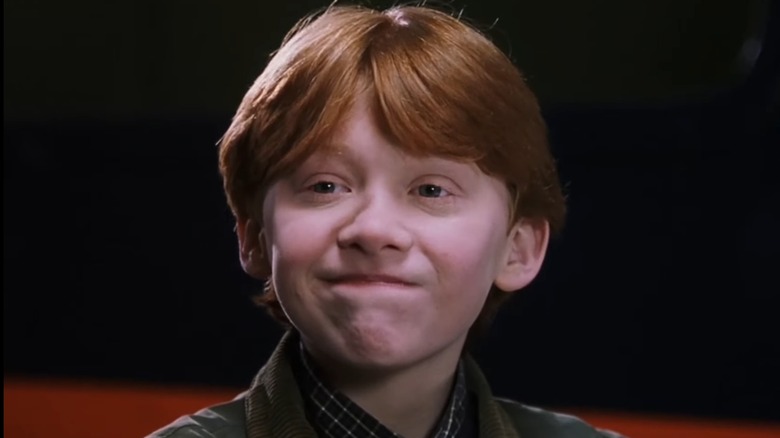
Diving into the world of Harry Potter, you’ll soon discover the three fundamental traits that shape Ron Weasley: his unwavering loyalty, infectious humor, and occasional bouts of insecurity.
Standing staunchly by Harry’s side, Ron’s loyalty is as reliable as a Hogwarts’ enchantment. You’ll find yourself chuckling at his jokes, his humor adding a light-hearted touch to the darkest of situations.
Yet, Ron’s insecurities, often hidden beneath his humor, make him relatable. He’s not just a sidekick, he’s a real boy grappling with his place in a magical world. Living in the shadow of his successful siblings and his famous best friend, Ron’s journey of self-discovery is as enthralling as the magical quests he undertakes.
Ron Weasley is an embodiment of loyalty and humor, tinged with a relatable insecurity.
Fan Reception of Ron

While Ron’s loyalty, humor, and insecurity make him a complex character, fan reactions to him are equally diverse and layered. You may find that the fan base is split, with some admiring his character development, while others raise eyebrows at his occasionally frustrating behavior.
- Some fans laud Ron’s transformation from an insecure sidekick into a hero, appreciating the realism in his character development.
- Others, however, find his lack of self-confidence irritating and feel it hinders his character progression.
- The comedic relief Ron provides is another aspect fans love about him.
- His unwavering loyalty to Harry is widely admired but also sparks debates.
- Ultimately, Ron’s relationship with Hermione has left fans divided and often fuels intense discussions.
Ultimately, Ron’s character is a fascinating blend of traits that continuously stir up diverse fan reactions.
Debates Surrounding Ron’s Role
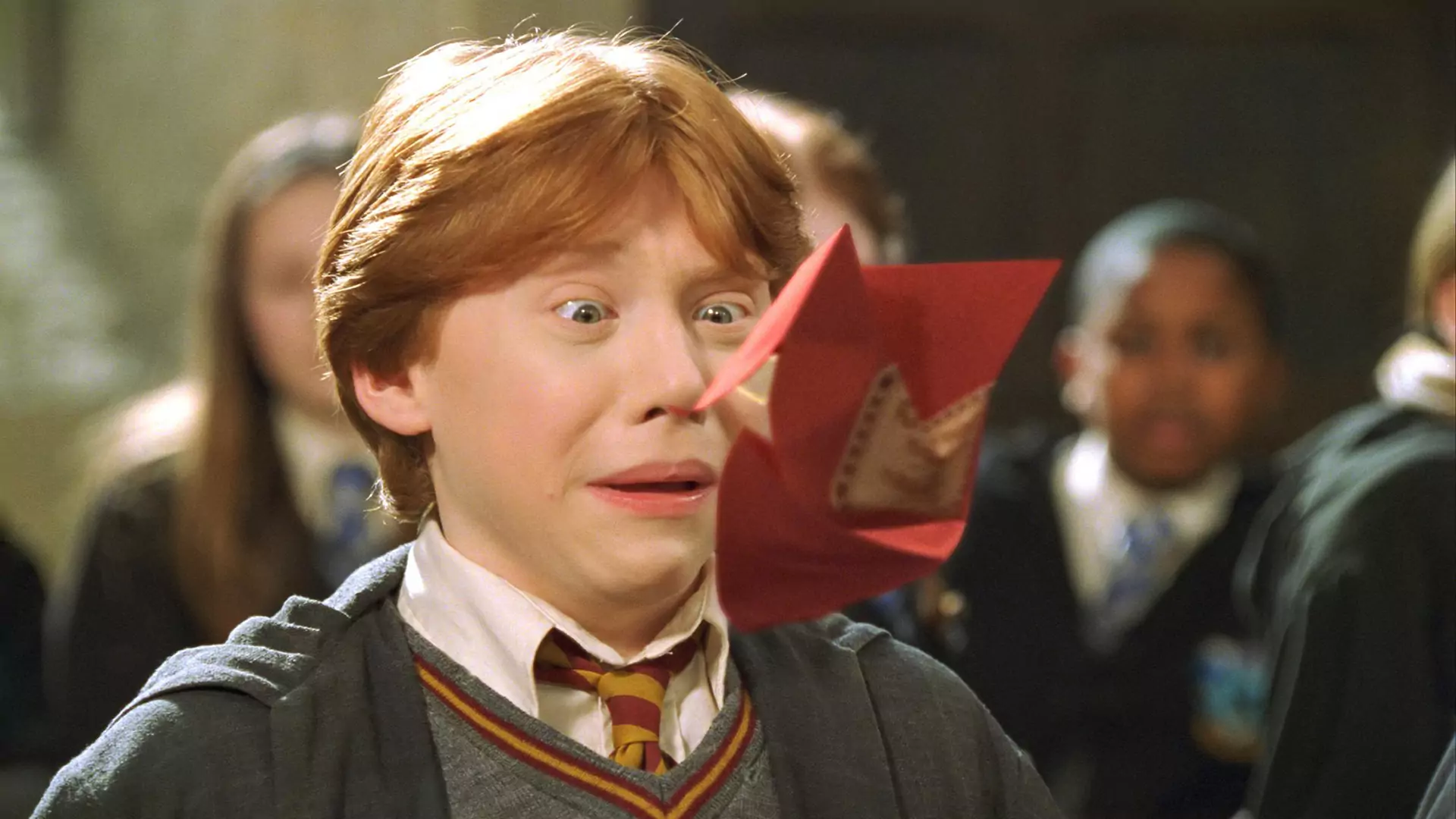
You’ll find a myriad of debates surrounding Ron’s role in the Harry Potter series, reflecting the complexity and divisiveness of his character. Some assert his significance as the emotional glue binding the trio, while others debate his contribution, dismissing him as merely Harry’s shadow.
This controversy doesn’t end there. Ron’s character sparks further discord. Some fans adore his loyalty and humor, arguing that these traits make him an integral part of the story. Others, however, decry his insecurities as frustrating, undermining the character’s appeal.
Regardless of your stance, it’s clear that Ron’s role, fraught with debate and controversy, is a confirmation to J.K. Rowling’s ability to create complex, multi-faceted characters that continue to captivate audiences.
Symbolic Interpretations of Ron
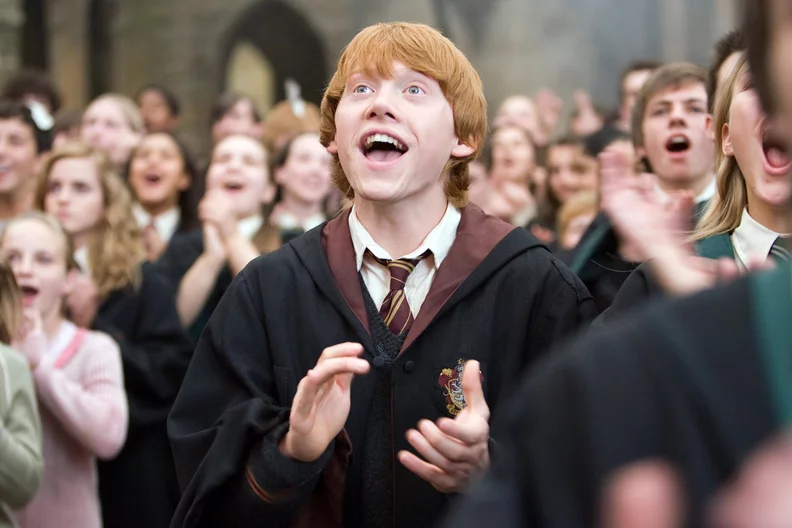
Beyond the lively debates about Ron’s role, there’s a layer of depth to his character when we explore the symbolic interpretations of his journey within the Harry Potter series. His character evolution is marked with symbolic depth, reflected in his actions and choices.
- His loyalty, symbolizing the importance of unwavering friendship, even in the darkest times.
- His insecurities, representing the struggle of every ordinary individual trying to find their place in a world filled with extraordinary beings.
- His humor, a symbol of resilience and the ability to find light in the midst of darkness.
- His growth from Harry’s sidekick to a hero in his own right.
- His struggle to step out of his friends’ shadows, representing the journey of self-empowerment and finding one’s identity.
Ron’s Cinematic Representation

Now, brace yourself as we submerge into the cinematic universe of Harry Potter, where Ron Weasley’s character takes on a whole new dimension through the lens of the film adaptations.
The cinematic portrayal of Ron Weasley brings forth an image of a loyal, humorous, and sometimes insecure character. He’s shown to be a sidekick, living often in the shadow of his more famous friends, but he also has his moments of heroism. The visual storytelling of the film adaptations adds depth to these elements of his character.
However, there’s a noticeable shift in Ron’s character in the movies compared to the books. Some fans argue that the films often downplayed Ron’s importance, making him more of a comic relief than the complex character he’s in the novels.
Performance by Rupert Grint

Undeniably, Rupert Grint’s performance as Ron Weasley played an instrumental role in bringing the character’s lovable quirks and insecurities to life on the big screen. Grint’s portrayal was so spot-on, you might’ve forgotten he was acting at all. His knack for comedy balanced the series’ darker moments while his delivery of Ron’s fears showcased a depth to the character.
- Grint’s natural charm amplifying Ron’s likability
- Masterful delivery of comedic lines
- Convincing portrayal of Ron’s insecurities
- Grint’s chemistry with co-stars enhancing Ron’s relationships
- Notable growth across the series in Rupert Grint’s portrayal
Ron’s on-screen presence, thanks to Grint, made audiences around the world root for the red-haired wizard. Grint’s performance truly encapsulated the essence of Ron Weasley, contributing significantly to the character’s enduring appeal.
Book Ron Versus Movie Ron
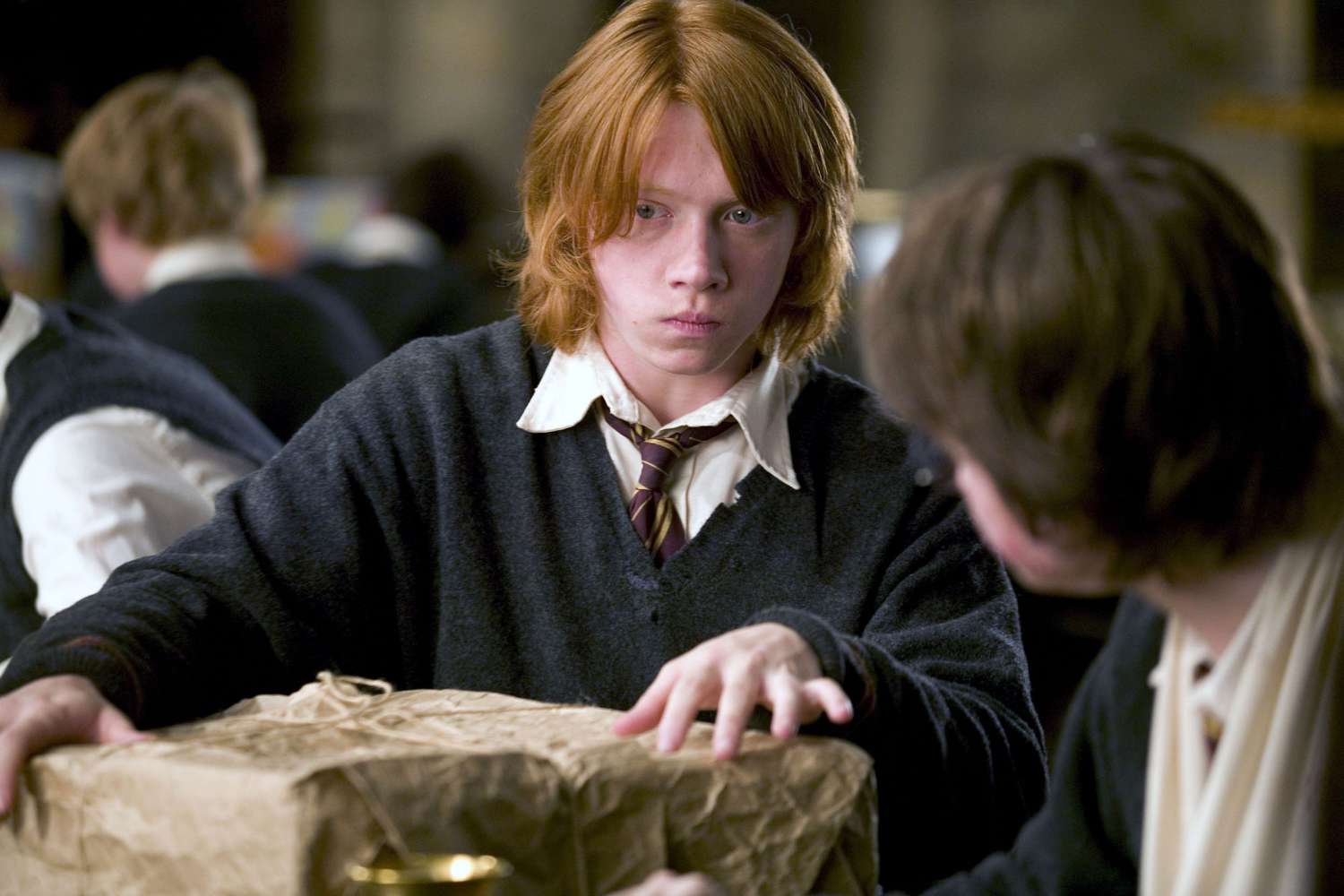
Diving into the pages of the Harry Potter books, you’ll find that the character of Ron Weasley is somewhat different from the version we see on the silver screen. In the books, Ron’s character dynamics are more complex, his humor sharper, his loyalty fiercer, and his insecurities more evident. His role as Harry’s right-hand man and Hermione’s love interest is well-crafted, making him a pivotal character.
The movie Ron, on the other hand, is a visual adaptation that puts more emphasis on his comedic side, often at the expense of his depth. Despite Rupert Grint’s commendable performance, some nuances of Ron’s character seem lost, creating a lighter, less layered version. This difference often sparks debates among the Potterheads, leading to mixed feelings about Ron Weasley.
Influence of Films on Ron’s Image
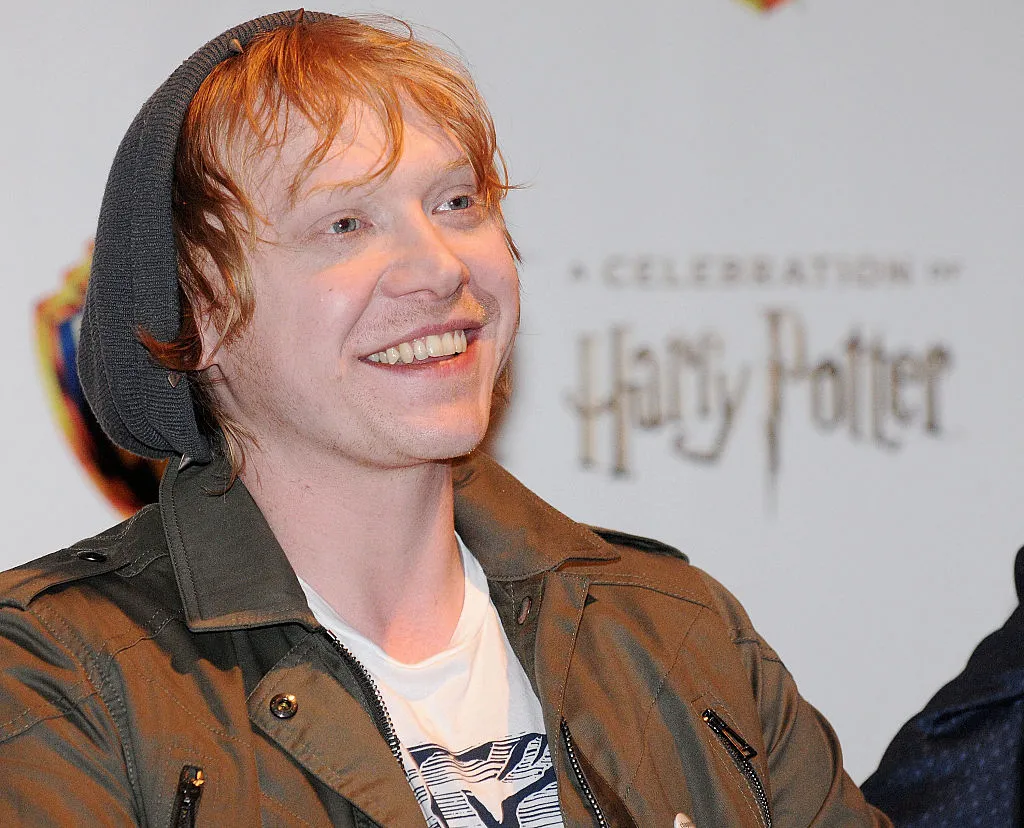
Shaped considerably by the Harry Potter film series, your perception of Ron Weasley might be more influenced by the big screen interpretation than you realize. The film portrayal of Ron, brought to life by Rupert Grint, took certain liberties with the character evolution, sometimes sidelining Ron’s heroism in favor of comic relief or secondary plotlines.
- The movies emphasized Ron’s comedic side, often at the expense of his bravery.
- Ron’s insecurities were played up, sometimes detracting from his growth.
- Key moments of Ron’s heroism were given less screen time.
- The films occasionally reduced Ron’s role, giving his lines to Hermione.
- The movies sometimes painted Ron as more of a sidekick than a co-hero.
This interpretation perhaps gave you a Ron who was less complex and heroic than his book counterpart.
Synthesizing Ron’s Character Analysis
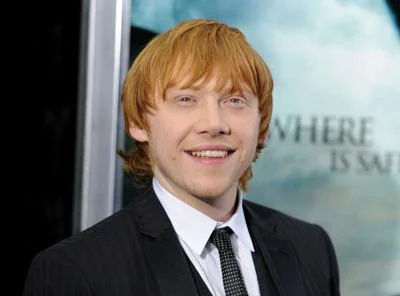
Pulling together all the threads from our exploration of Ron Weasley’s character, it’s clear that he’s far more complex and integral to the Harry Potter series than you might initially perceive. His character growth, from the insecure sidekick to a loyal, brave hero, is a proof of his depth.
Fan interpretations vary, with some empathizing with his struggles, while others criticize his moments of insecurity. Yet, it’s these very traits that make him relatable, human. His humorous persona and unwavering loyalty add a unique flavor to the trio.
His relationship dynamics with Harry and Hermione further contribute to his multifaceted nature. Ron’s character is a complex tapestry of humor, loyalty, insecurity, and growth, making him a crucial part of the series.
Ron’s Impact on the Harry Potter Series
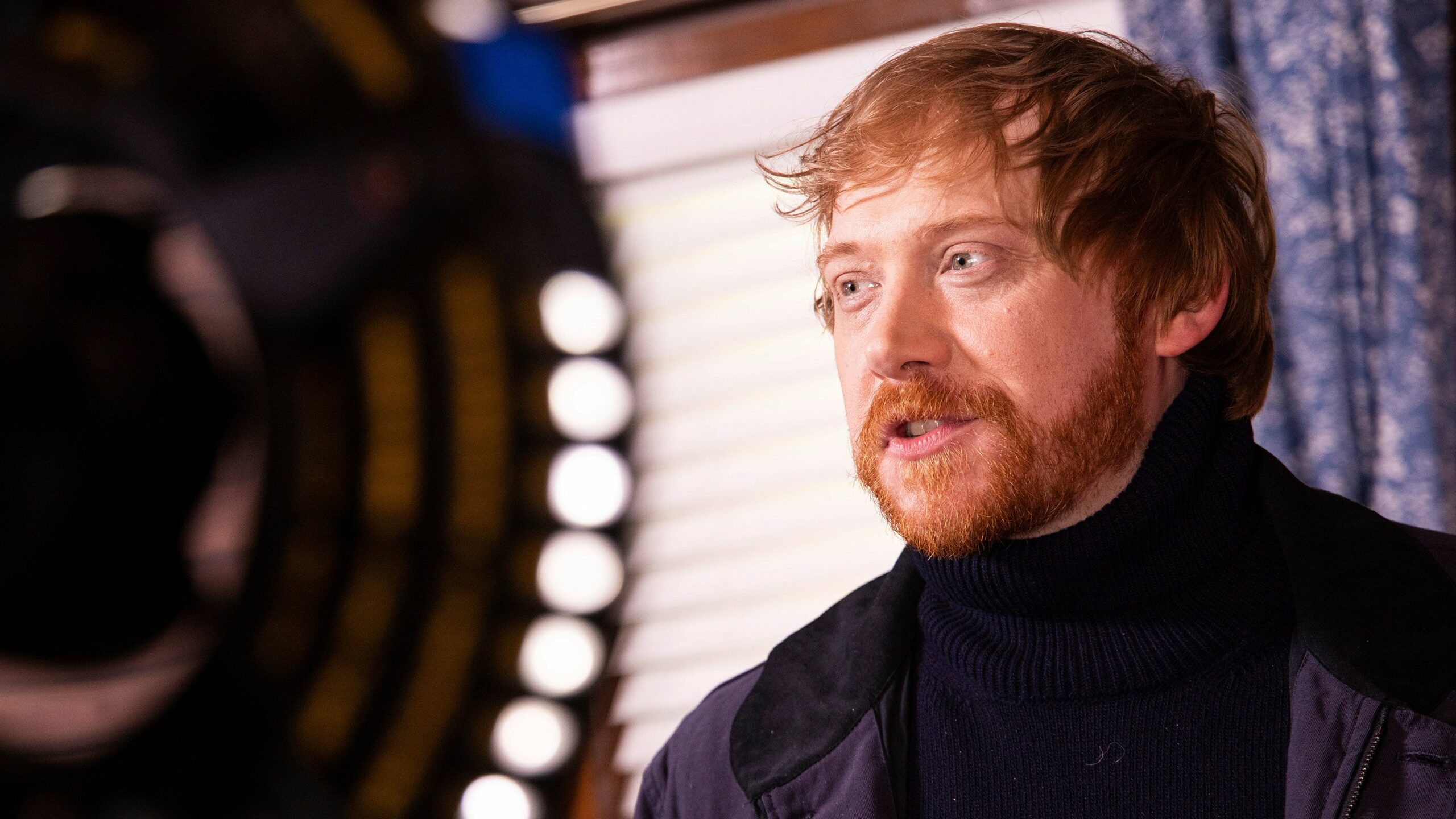
Without a doubt, Ron Weasley’s impact on the Harry Potter series is profound, shaping the narrative in ways you mightn’t initially realize. His character development from an overshadowed younger brother to a brave, loyal friend gives the story depth and complexity.
- Ron’s comic relief lightens the often dark and serious tone.
- His insecurities show a relatable, human side to this magical world.
- Ron’s unwavering loyalty to Harry, despite his jealousies, emphasizes the theme of friendship.
- His evolving relationship with Hermione adds a romantic subplot.
- Ron’s growth from a sidekick to a hero provides a satisfying character arc.
The impact on fans is substantial. His struggles resonate with many, making him a beloved character in the series.
Conclusion
So, there you have it, folks. Our dear, misunderstood Ron Weasley – a hero, a sidekick, an ‘everyman’, and a cinematic letdown. Forever in the shadows, often overlooked, yet vital to our Potterverse.
Fans may squabble, movies may muddle, but at the end of the day, we all know this: without our quirky, loyalty-challenged, chess-playing redhead, Harry’s journey wouldn’t be half as magical.
Here’s to you, Ron Weasley – the weirdest hero we couldn’t help but love.